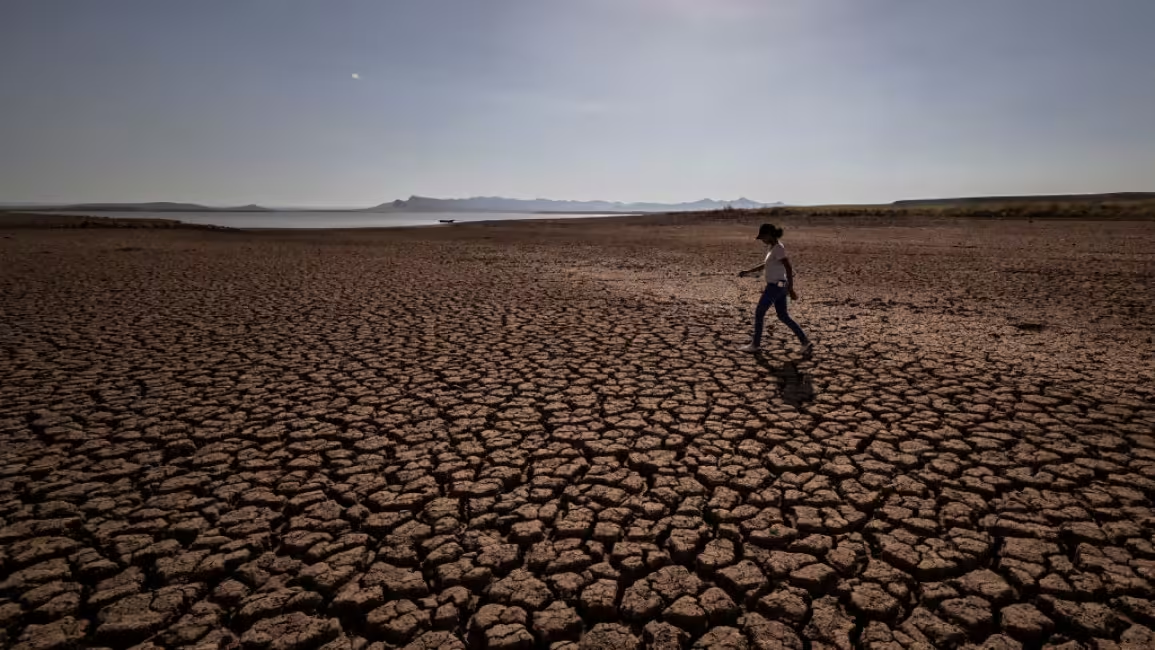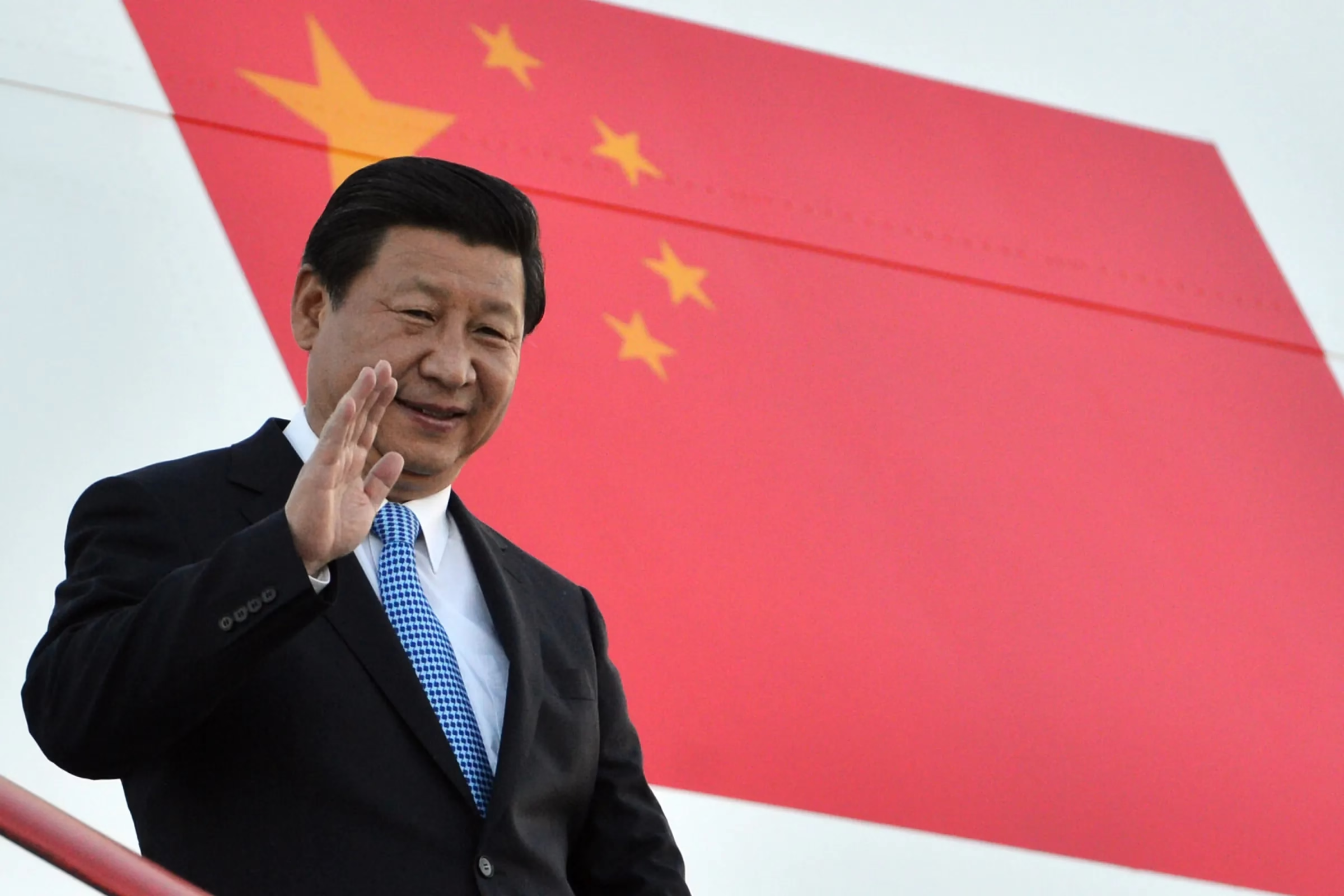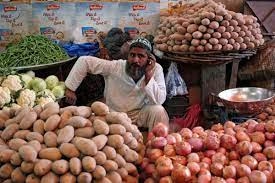In a sun-baked village north of Morocco’s capital Rabat, Mustapha Loubaoui and other itinerant workers wait idly by the roadside for farm work made scarce by a six-year drought.
Loubaoui, 40, traveled 280 kilometers on his combine harvester, hoping to find work in the once-booming agricultural village of Dar Bel Amri. His journey was in vain. Loubaoui now fears he will join the approximately 159,000 Moroccan agricultural workers who have lost their jobs since early last year, according to official figures.
“Work has become hard to come by because of drought,” Loubaoui told AFP.
Large areas of the Mediterranean are under “alert drought conditions,” a phenomenon even more pronounced in Morocco, Algeria, and Tunisia, according to the European Drought Observatory’s latest analysis.
In Morocco, the lack of water threatens the viability of the crucial agriculture sector, which employs around a third of the working-age population and accounts for 14 percent of exports. More than one-third of Morocco’s total cultivated area lies unused due to drought, now about 2.5 million hectares compared to four million before the severe water scarcity, according to Agriculture Minister Mohammed Sadiki.
As arable land decreased, so did employment. The North African kingdom’s unemployment rate rose to a record 13.7 percent in the first quarter of 2024, reported the High Planning Commission (HCP), the government’s statistical body. It noted that 1.6 million of Morocco’s 37 million people are out of work and emphasized that “the labor market continues to endure the effects of drought.”
Among those affected is Chlih El Baghdadi, a farmer near Dar Bel Amri. His grain harvest suffered major losses due to drought, leaving him at home rather than working his fields. He and his five children now depend financially on his wife, who works at a larger farm near Meknes, about 70 kilometers away. These larger operations, primarily exporting their yield, have survived the drought due to water-intensive irrigation systems implemented under the “Green Morocco Plan” (PMV) launched in 2008. Agricultural revenues doubled from 63 billion dirhams to 125 billion dirhams ($12.5 billion) in 10 years, according to official data.
Another program, “Generation Green 2020-2030,” aims to enhance Morocco’s sustainable agriculture in light of climate challenges, targeting a doubling of agricultural exports to reach 60 billion dirhams by 2030. Yet, despite these initiatives, climate change-driven unemployment persists.
“We have modern and sophisticated agriculture, but it only spans around 15 percent of cultivatable areas,” said Abderrahim Handouf, a researcher and agricultural engineer. The “majority of farmers remain at the mercy of climate change,” and other economic sectors are “not able to accommodate them,” he added.
Morocco has worked to develop its industrial and service sectors over the past two decades, aiming to create more jobs. However, these efforts have not compensated for climate-linked unemployment. Cars, for instance, topped Morocco’s exports last year with a record value of more than 141 billion dirhams, but the industry “only creates up to 90,000 jobs per year,” while there are 300,000 job seekers, Moroccan industry minister Ryad Mezzour said in May. “Employment is the weak spot of the economic system,” he said in a radio interview.
Facing criticism, Prime Minister Aziz Akhannouch told parliament last month that “drought has become reality.” He announced the expected creation of 140,000 new jobs as part of investment deals worth 241 billion dirhams in fields including renewable energy, telecommunications, tourism, and health. However, these numbers fall short of the million jobs he promised to create by 2026.
For farmers like Benaissa Kaaouan, 66, it’s too late. He said he would have left agriculture if he had learned another skill. Now he stands in the middle of his zucchini fields in Dar Bel Amri, most of them sun-spoiled. “There’s no life without rain,” Kaaouan said ruefully.



